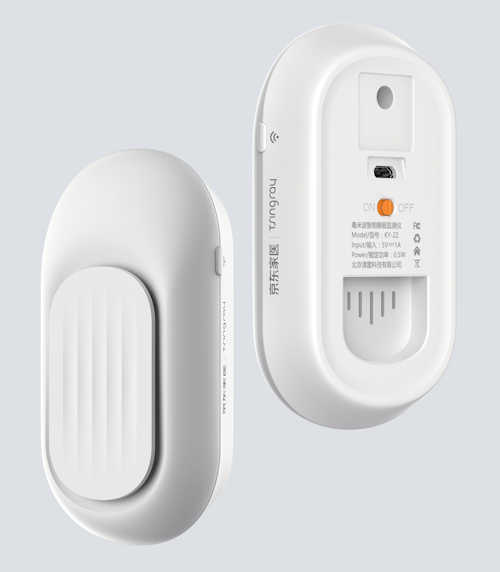TSINGRAY: Transforming medical health care – Next-generation sleep monitors with XENSIV™ radar sensors
Digitalization of medical health care
The main focus of medical care digitalization is to help patients become responsible and take their health matters in their own hands. The latest high-tech devices are completely reshaping how we interact with health professionals, how decisions are made about our treatment plans, and how we can take preventive actions against chronic illnesses. Patients can become alert to the smallest changes in their own health, monitor vital signs, and can be aware of what they should do in order to lead a quality life. There is an increasing importance of digital health tracking with the numbers going up from 33% in 2017 to 54% in 2020, compared to a decrease in analog health tracking from 45% to 29% respectively (source: OMDIA). In a growing wave of awareness for health improvement, also the drastic changes following Covid-19, there is a healthcare device growth expected in the consumer and medical diagnostic, patient monitoring and therapy sectors from 2020 to 2024.
Tsingray’s innovative/ground-breaking solution to sleep improvement
For years, Infineon has been helping its partners, including Tsingray, to embrace digital opportunities on the consumer market with high-quality sensors and comprehensive solutions.Our Associated partner Tsingray’s RADAR tomography technology makes a breakthrough in respiration and heartbeat modalities monitoring during night sleep.
This radar solution is a key enabler for the digitalization of medical healthcare in sleep improvement. The biggest highlight of the device is the adoption of millimeter-wave radar tomography sensing technology pioneered in the industry. With 2.5cm resolution chromatography and 100ms refresh period, it can monitor from multiple dimensions such as sleep, breathing, heart rate, body movement, sleeping posture, etc., that is, all the micro-motion data of the monitored person during sleep can be completely recorded.
How do Infineon’s products contribute to this innovative solution?
The smart sleep breathing monitoring device, using Infineon’s XENSIVTM mm-wave 60GHz radar chip, has recently been included in the cooperation of Tsingray with JD Health. This device is now part of a healthcare online service package for sleep quality improvement of "JD.com”, a huge online trading platform based in Greater China.
In addition to Infineon’s XENSIVTM millimeter-wave radar chip, Tsingray is also adopting Infineon's Wi-Fi/BLE, PSoC MCU and OPTIGA™ Trust B security chip solutions for the development of next-generation products of this sleep monitor.
With the support of Infineon’s XENSIVTM 60GHz mm-wave radar chip, the smart sleep breathing monitoring device is capable of realizing:
- Non-contact and non-sensitive continuous sleep monitoring and collection of real-time data all night long without affecting sleep.
- Accurate perception of vital signs and body movement micro-data of the whole sleep process, and multi-dimensional sleep monitoring by mm-wave chromatography.
- Automatic generation of monitoring reports providing data reference for customized sleep improvement plans, expert consultation, follow-up visits, etc..
- Diagnosis of sleep problems by AI auxiliary diagnosis and treatment system.
- Measurement of distance between objects with mm level precision with lower power consumption and minimal volume.
- Non-contact monitoring method, which avoids users’ discomfort, making the device very suitable for long-term home monitoring.
- Timely warning of sudden sleep death omens, long-term apnea and other dangers, which fills the gap of accurate monitoring of nighttime breathing patterns and heartbeat patterns.
- Support of the diagnosis of chronic breathing diseases such as chronic obstructive pulmonary disease, asthma, apnea and hypoventilation.
What does the future hold for Tsingray?
It is learned that Tsingray is now cooperating with several well-known hospitals and clinical medical research institutions in China to promote the application of digital medical care and health care. At the same time, 100,000+hours’ vital signs data accumulated by Tsingray has also laid a solid data foundation for comprehensive sleep research.
In respect of supporting the prevention and management of chronic diseases through the daily monitoring and accumulation of medical and health data, the case of Tsingray well proves the commercial value of this direction.


